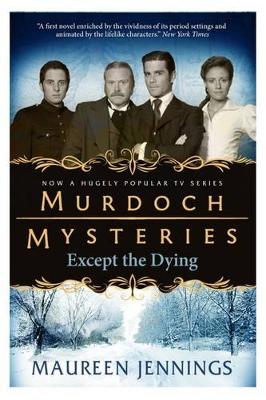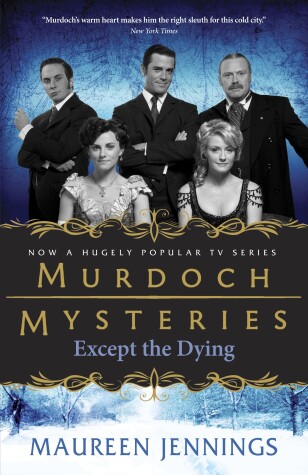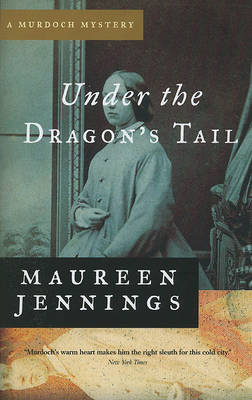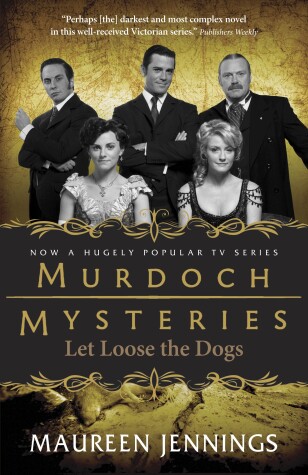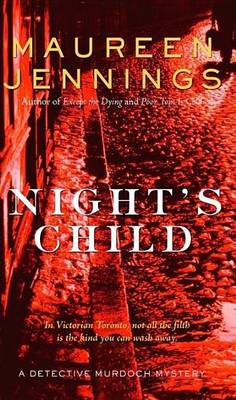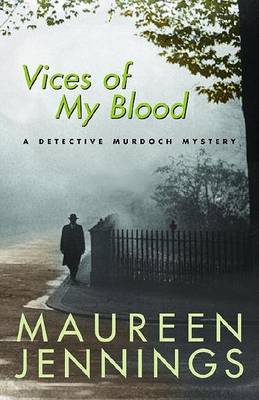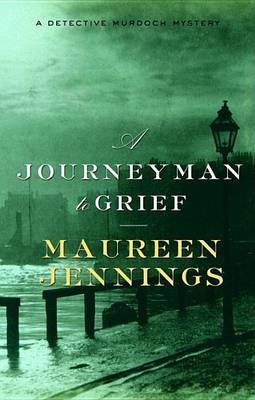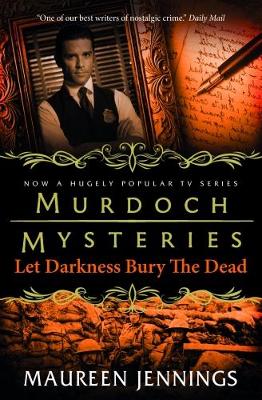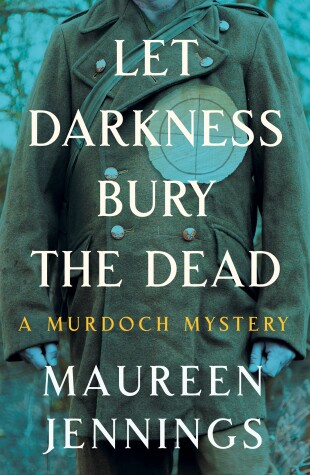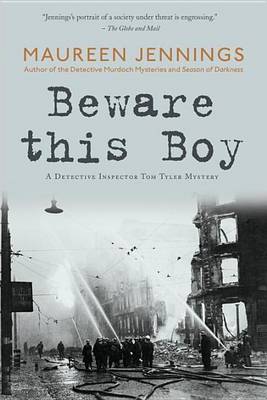A Murdoch Mystery
9 primary works • 11 total works
Book 1
Book 1
In the cold Toronto winter of 1895, the unclad body of a servant girl is found frozen in a deserted laneway. The young victim was pregnant when she died. Was her death an attempt to cover up a scandal in one of the city's influential families? Detective William Murdoch quickly finds out that more than one person connected with the girl's simple life has something to hide.
Book 2
Desperate women, rich and poor, come to her in need of help - and discretion. Dolly Merishaw is a midwife and an abortionist in Victorian Toronto, but although she keeps quiet about her clients' condition, her contempt and greed leaves them resentful and angry. So it comes as no surprise when this malicious woman is murdered. What is a shock, though, is that a week later a young boy is found dead in Dolly's squalid kitchen. Now, Detective Murdoch isn't sure if he's hunting one murderer - or two.
Book 4
Book 5
Night’s Child is the fifth novel in Maureen Jennings’s highly praised historical mystery series. Three of Jennings’s novels have been made into TV movies under the title Murder 19C: The Murdoch Mysteries. Bravo/CHUM is currently developing a series based on the character of Detective William Murdoch for broadcast in 2007.
Book 6
The Reverend Charles Howard once sat in judgment of Toronto's poor and assessed their applications for the workhouse. Now he has been found dead: stabbed, beaten, and robbed of his watch and boots. Is it simply a case of burglary gone wrong, or has one of the unfortunates the reverend turned away taken their revenge on him?
Detective Murdoch's investigation takes him deep into the Dickensian world of Toronto's workhouses and the destitute souls who fill them as he sets out to discover who really murdered the reverend.
Book 7
In 1858, a young woman on her honeymoon is forcibly abducted and taken across the border from Canada and sold into slavery. Thirty-eight years later, Detective Murdoch is working on a murder case that will take all of his resourcefulness to solve. The owner of one of Toronto’s livery stables has been found dead. He has been horsewhipped and left hanging from his wrists in his tack room, and his wife claims that a considerable sum of money has been stolen. Then a second man is also murdered, his body strangely tied as if he were a rebellious slave. Murdoch has to find out whether Toronto’s small “coloured” community has a vicious murderer in its midst — an investigation that puts his own life in danger.
Maureen Jennings’s trademark in her popular and acclaimed Detective Murdoch series is to reveal a long-forgotten facet about life in the city that dispels any notion that it really ever was “Toronto the Good.” As well, in A Journeyman to Grief, an exceptionally well plotted and engrossing story, she shows just how a great harm committed in the past can erupt fatally in the present.
Book 8
Book 8
It is November 1917. The Great War is grinding on, chewing up young men by the thousands. Initially, in the loyal Dominion of Canada, people are mostly eager to support the Motherland and fight for the Empire. Men perceived as slackers or cowards are shunned. But the carnage is horrendous and with enforced conscription, the enthusiasm for war is dimming.
William Murdoch is a widower, a senior detective who, thanks to the new temperance laws, spends his time tracking down bootleggers and tipplers; most unsatisfying. His wife, Amy, died giving birth to their second child, a girl who lived only a few hours more. Murdoch, racked by grief, withdrew from four-year-old, Jack. This he regrets and would dearly love to make up for his negligence.
As we enter the story, Jack, now twenty-one, has returned from France after being wounded and gassed at the Battle of Passchendaele. It is soon apparent that he is deeply troubled but he's not confiding in his father. He does, however, seem to be bound by shared secrets to another wounded former soldier, Percy McKinnon.
Murdoch suddenly has much more serious crimes than rum-running on his hands. The night after Jack and McKinnon arrive home, a young man is found stabbed to death in the impoverished area of Toronto known as the Ward. Soon after, Murdoch has to deal with a tragic suicide, also a young man. Two more murders follow in quick succession. The only common denominator is that all of the men were exempted from conscription.
Increasingly worried that Jack knows more than he is letting on, Murdoch must solve these crimes before more innocents lose their lives. It is a solution that will give him only sorrow.
A police constable named Oliver Wicken has apparently committed suicide, leaving his mother and his invalid sister to fend for themselves. The evidence, according to the coroner, is irrefutable. Wicken was shot in the temple with his own revolver and a farewell note has been found beside his body. But new and disturbing evidence is brought to light that leads Detective Murdoch to suspect that the suicide was not what it seemed.
Whether describing a tooth extraction, the unquestioning prejudice toward the few Chinese immigrants in the city, or the well-intentioned, but bizarre, treatment of mentally ill women, Maureen Jennings once again brings late-Victorian Toronto vividly to life.
November, 1940. Tom Tyler, Detective Inspector of the small Shropshire town of Whitchurch, is a troubled man. The preceding summer had been a dark one for Britain, and even darker for Tom's own family and personal life. So he jumps at the opportunity to help out in the nearby city of Birmingham, where an explosion in a munitions factory has killed or badly injured several of the young women who have taken on dangerous work in support of the war effort.
At first, it seems more than likely the explosion was an accident, and Tom has only been called in because the forces are stretched thin. But as he talks to the employees of the factory, inner divisions -- between the owner and his employees, between unionists and workers who fear communist infiltration -- begin to appear. Put that together with an AWOL young soldier who unwittingly puts all those he loves at risk and a charming American documentary filmmaker who may be much more than he seems, and you have a page-turning novel that bears all the hallmarks of Maureen Jennings' extraordinary talent: a multi-faceted mystery, vivid characters, snappy dialogue, and a pitch-perfect sense of the era of the Blitz, when the English were pushed to their limits and responded with a courage and resilience that still inspires.
